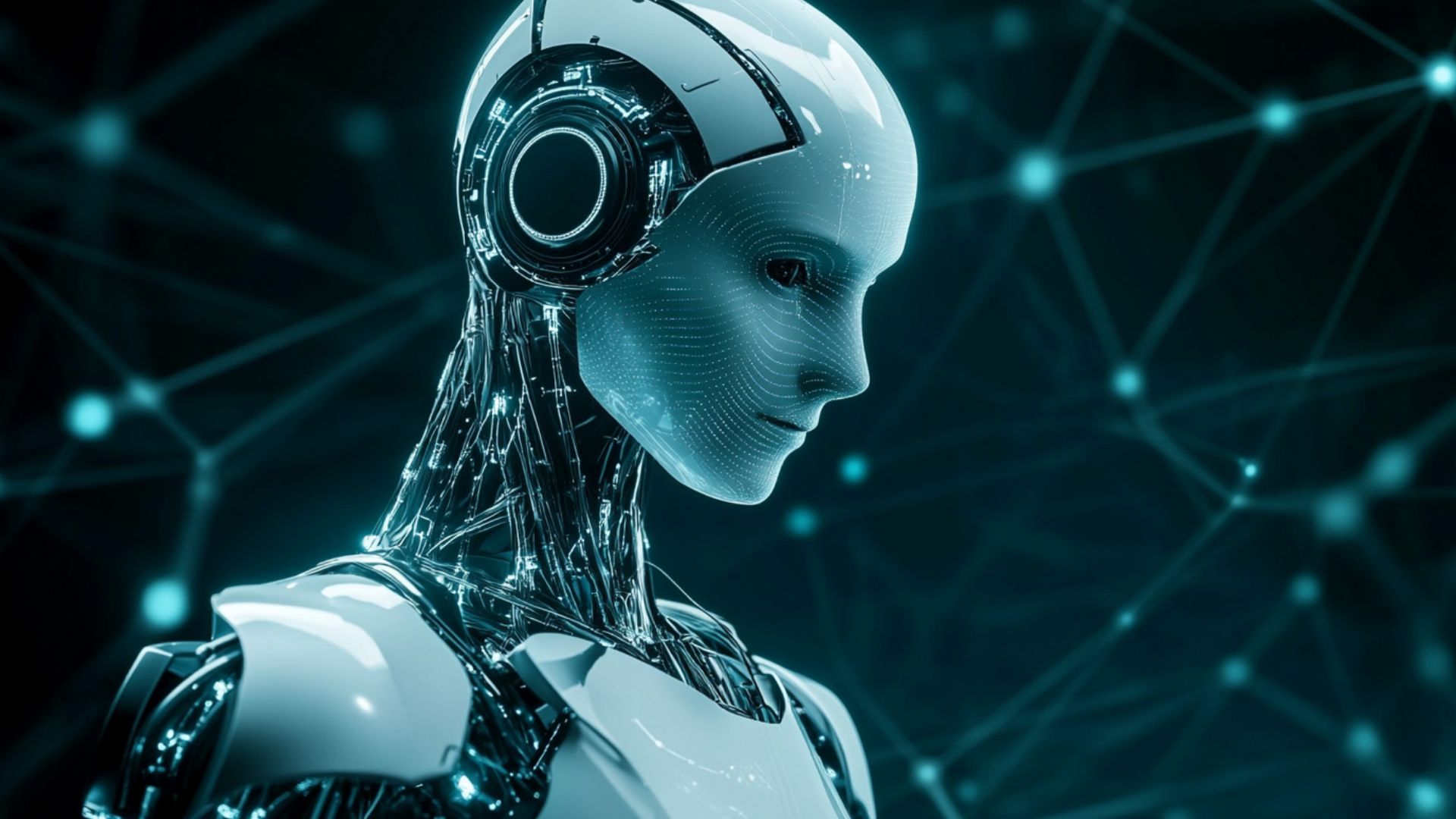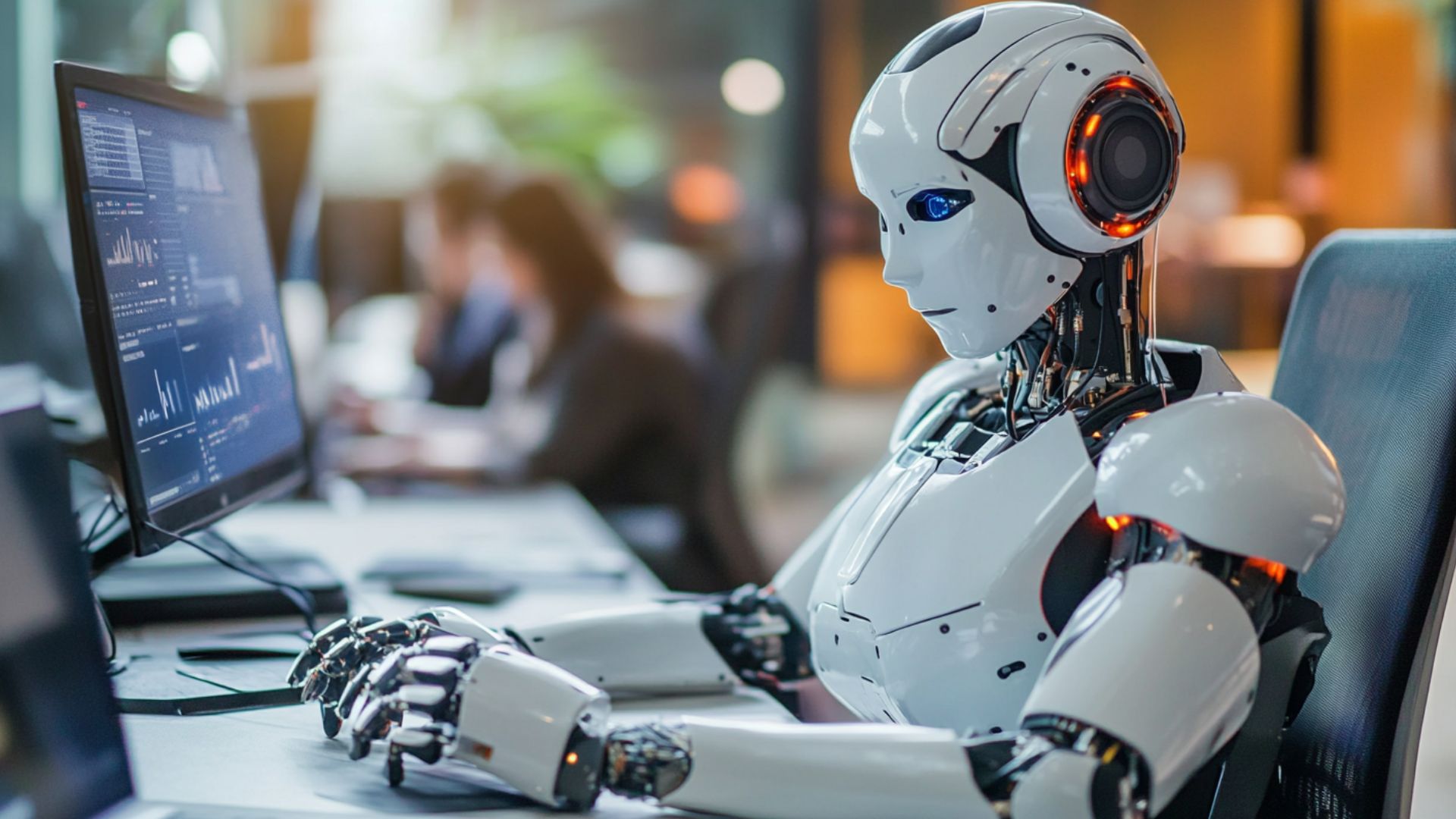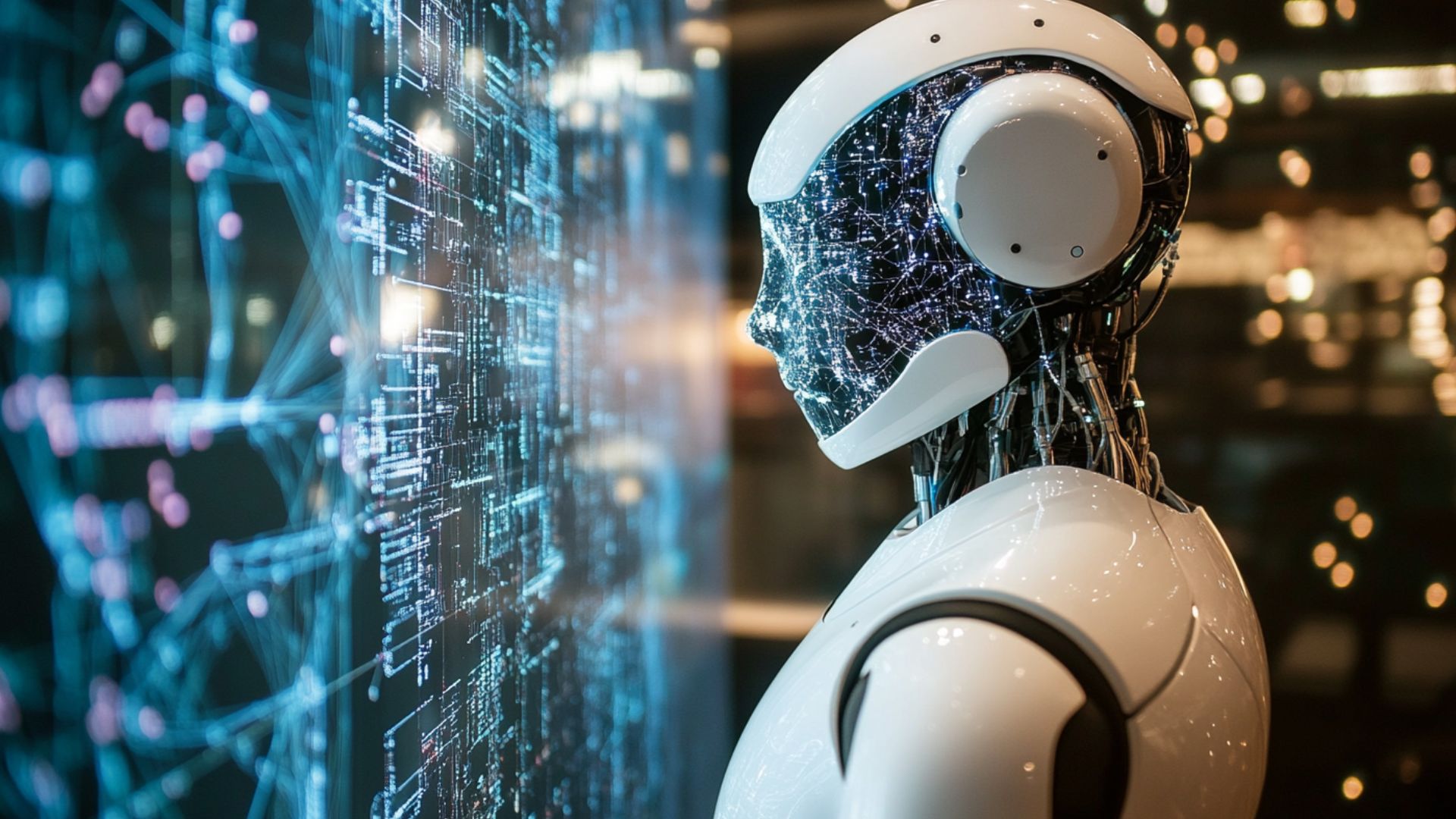Conversational AI and Automation: Shaping the Future of HR

The traditional workplace is undergoing a digital makeover driven by powerful new technologies. One area ripe for transformation is Human Resources. Conversational AI can engage in natural conversation and answer employee queries. It presents a game-changer for HR.
Imagine chatbots handling routine inquiries, scheduling interviews, or even providing initial onboarding support. Automation, meanwhile, can streamline repetitive tasks like payroll processing or benefits enrollment. By harnessing this synergy between human and machine intelligence, HR departments can free themselves from administrative burdens and focus on what matters most: fostering a positive employee experience and driving strategic initiatives that propel the business forward.
Revolutionizing HR with Conversational AI
Conversational AI is transforming the way HR departments interact with employees. These intelligent chatbots utilize natural language processing (NLP). It's to understand user queries, complete tasks, and provide relevant information and support.
This integration offers a multitude of benefits for HR, primarily focusing on:
- Enhancing Communication. Chatbots act as a readily available resource for employees. They provide 24/7 access to answers about company policies, benefits plans, and even basic troubleshooting issues. It frees up HR professionals to address more complex inquiries. And it fosters a more streamlined communication flow.
- Streamlining HR Tasks. Conversational AI for HR can automate repetitive administrative tasks, reducing workload. Chatbots can handle repetitive tasks like scheduling and updating requests efficiently. It allows HR teams to focus on strategic initiatives and employee relations.
Personalizing Employee Experiences with Conversational AI
The power of conversational AI in HR lies not just in automation but also in personalization. These assistants can learn about individual employee preferences and needs over time. They offer tailored support and advice.
For example, a chatbot can guide new hires through the onboarding process based on:
- Their specific role.
- Recommend relevant training materials.
Or they can even connect them with mentors within the company. It can answer personalized questions about career paths, benefits enrollment, or company policies. It creates a more engaging and supportive employee experience.
Several firms have implemented human resources automation to improve employee engagement and satisfaction:
- Hilton. Hilton deployed a chatbot named "Connie" to answer employee questions about benefits and payroll. It resulted in a significant decrease in HR service desk calls. It frees up HR staff for more strategic tasks and boosts employee satisfaction with the ease of accessing information.
- PricewaterhouseCoopers (PwC). PwC's chatbot "Emmi" provides new hires personalized support throughout onboarding. Emmi answers questions, guides them through paperwork, and even schedules meetings. This personalized approach has led to a more positive onboarding experience for new hires.
These examples showcase the potential of conversational AI to personalize the employee experience. It leads to a more engaged and productive workforce.
Automating Recruitment Processes
Conversational AI for HR is also revolutionizing recruitment. It automates and optimizes various stages of the hiring process. AI-powered chatbots can screen resumes and conduct initial interviews. It saves recruiters valuable time and resources.
Benefits of AI-driven Recruitment:
- Reduced Time-to-Hire. Chatbots can efficiently screen resumes 24/7. They can identify qualified candidates and schedule interviews quickly. It leads to a faster recruitment process.
- Enhanced Candidate Engagement. Bots can answer candidate questions about the company culture, role, and interview process. It fosters a positive candidate experience from the start.
- Impartiality in Screening. AI-driven pre-screening can cut unconscious bias from the early stages of the recruitment process. It ensures a more diverse and qualified candidate pool.
Human resources automation can conduct initial interviews using video or text-based interactions. These interviews can assess a candidate's basic skills, knowledge, and cultural fit. It allows recruiters to focus their time on in-person interviews with candidates.
However, it's important to remember that AI should be a tool to enhance the recruitment process. It can not replace human interaction. Humans are crucial for evaluating cultural fit, soft skills, and leadership potential. It's during in-depth interviews and final hiring decisions.
Automating HR Processes for Operational Efficiency

Automation is rapidly transforming Human Resources, leading to significant improvements in operational efficiency. From payroll processing to employee data management, repetitive and time-consuming tasks can be streamlined with automation tools, freeing HR professionals to focus on more strategic initiatives. Here's how.
Streamlining Payroll and Benefits Administration
Payroll processing and benefits administration are two complex and error-prone areas in HR. When automating HR processes, you get a solution:
- Simplified Payroll Processing. Automated payroll systems can handle everything from calculating salaries to generating payslips. It eliminates manual data entry. It minimizes errors and ensures timely and accurate employee payments.
- Effortless Benefits Administration. Benefits enrollment can be a cumbersome process for both employees and HR. Automated systems allow employees to choose their benefits plans online. It streamlines enrollment and reduces paperwork. Additionally, automated systems can manage claims processing and ensure compliance with relevant regulations.
- Accuracy and Compliance. Automation ensures consistency and accuracy in calculations, deductions, and reporting. It mitigates errors and minimizes compliance risks associated with payroll and benefits administration.
- Conversational AI for Improved Service Delivery. Automation in HR processes can work with payroll and benefits systems. Assistants can answer employee queries about payslips, deductions, benefits coverage, and enrollment procedures. This 24/7 access to information empowers employees and reduces the workload on HR teams. Imagine an employee asking the company chatbot, "When can I expect my next paycheck?" and receiving an instant answer. It frees up HR professionals to address more complex issues.
Enhancing Data Management and Compliance
HR data management is crucial. It's for informed decision-making, performance reviews, and compliance with labor laws. Automation plays a critical role in this process:
- Improved Data Accuracy. Automated data collection and entry systems minimize data duplication and errors. It ensures data integrity. It provides HR with a reliable foundation for analysis and reporting.
- Streamlined Data Maintenance. Human resources automation of employee onboarding processes captures necessary information upon hire. It reduces the need for manual data entry and updates. Also, reminder systems can be set up to notify employees of upcoming changes. They are address updates. It ensures information remains current.
- Compliance with Regulations. Automation tools can track and manage compliance deadlines related to employee data privacy, tax regulations, and labor laws. It allows HR to stay proactive and avoid potential legal and financial repercussions.
- Conversational AI for Up-to-Date Records and Audit Support. Conversational AI can capture employee updates in real time. For instance, an employee can use a chatbot to notify HR of a change in their address or emergency contact information. It ensures data remains current and streamlines record-keeping.
- Facilitating Audits. Automated systems can generate reports and provide easy access to historical data. It simplifies the audit process for HR and external auditors. It saves time and resources while ensuring transparency and accountability.
With automation in human resources, it can operate with greater efficiency and accuracy. Free from tedious administrative tasks, HR professionals can focus on strategic initiatives. They are employee engagement, talent development, and workforce planning.
Empowering HR with Data-Driven Insights

Conversational AI and automation are not just about streamlining processes. They are powerful tools for generating valuable data-driven insights for HR leaders. Here's how these technologies empower informed decision-making:
- Real-Time Employee Feedback. Conversational AI chatbots provide a continuous stream of employee feedback through their interactions. HR can identify common concerns and pain points by analyzing chatbot conversations and user queries. You can use this real-time data to address employee needs proactively and foster a more positive work environment.
- Predictive Analytics for Talent Management. Automated HR process systems can analyze vast amounts of employee data. It includes performance evaluations, skills inventories, and career aspirations. It allows for predicting future talent needs, identifying high-potential employees, and implementing targeted training. Also, they can predict potential flight risks and develop retention strategies.
- Data-Driven Recruitment. By analyzing data on successful hires, recruitment efforts can be optimized. This includes identifying the most effective job boards, tailoring job descriptions to attract ideal candidates, and assessing candidate skills based on real-world data points.
- Shaping Future HR Strategies. You can leverage data insights from automation in HR processes. It's to develop evidence-based strategies. Those drive business goals. Imagine analyzing data to identify skill gaps within the organization and then developing targeted training programs to address those gaps. It ultimately boosts overall productivity and innovation.
The future of HR is undoubtedly data-driven, and conversational AI and automation are key enablers.
The Future of HR: Conversational AI and Automation
Technological advancements continuously shape the HR landscape. Here's what we can expect in the future of HR with conversational AI and human resources automation:
- Evolution of Conversational AI. Chatbots will become more sophisticated. They will be capable of understanding complex employee queries. They will even offer personalized career coaching or mental health support.
- Advanced Chatbots. Imagine a future with AI-powered HR assistants. They handle performance reviews, conduct training, and even provide personalized career development feedback.
- Hyper-Automation. More HR processes will be automated. It's from onboarding and performance management to leave management and compensation reviews. It will further streamline HR operations and free up valuable time for strategic initiatives.
- Focus on Human-Machine Collaboration. While automation will handle routine tasks, human expertise will remain crucial. The future will see HR teams collaborating with AI-powered tools. It's to make better decisions, drive innovation, and create a more engaging work environment.
Automation in human resources continues to integrate into practices. So, challenges need to be addressed:
- Ethical Considerations. Data privacy and security will be paramount. HR needs to ensure responsible data collection and use practices that follow regulations.
- Human Interaction and Empathy. While AI offers immense benefits, human interaction remains vital. HR professionals need to develop strategies. It's to maintain open communication, trust, and a strong company culture.
For HR departments to thrive in this evolving landscape, a roadmap for adaptation and innovation is necessary:
- Upskilling HR Teams. HR professionals need data analysis, AI literacy, and human-centered design thinking training. It's to leverage automation effectively.
- Investing in the Right Technologies. Carefully selecting and implementing the right automation and AI tools tailored to specific HR needs is crucial.
- Focus on the Human Element. Automation streamlines tasks. However, fostering human connection and employee well-being should remain a core HR focus.
Conversational AI in HR is transforming HR. It creates a future of:
- Data-driven decision-making.
- Efficient operations.
- A more empowered workforce.
HR departments can become strategic partners in driving organizational success. They need to embrace these technologies and navigate the challenges with a focus on innovation and human connection.


